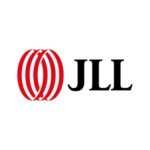 Travel has gone through a year of unprecedented challenges. 2020 was, without a doubt, the single most difficult year in the hospitality industry in recent history. With that behind us, we enter unchartered waters where anything is possible. Now, as travel emerges from a slumber, hoteliers have a unique opportunity to reshape customers’ purchasing habits that were all but forgotten.
Travel has gone through a year of unprecedented challenges. 2020 was, without a doubt, the single most difficult year in the hospitality industry in recent history. With that behind us, we enter unchartered waters where anything is possible. Now, as travel emerges from a slumber, hoteliers have a unique opportunity to reshape customers’ purchasing habits that were all but forgotten.
Travelers, like all consumers, are habitually minded
Changing a person’s purchasing behavior is no easy task. Habits dictate nearly half of every decision we make, and they’re challenging to break.
The same is true when it comes to purchasing choices. People have brand loyalties, habitual buying patterners, and seek comfort in the familiar. It is during moments of great change or uncertainty when consumers change loyalties the most.
Life changes—like having a child—push consumers to form new habits and establish new loyalties. While the last year was not quite childbirth, it certainly was monumental. As travel begins its recovery, hoteliers have a unique opportunity to influence travelers like never before and create a new wave of brand loyalty.
The return of direct bookings
Since the early 2000s, online travel agencies and third-party distribution channels have dominated the reservation space, effectively shifting market share and ownership of the traveler. However, the encouraging news is that many hotels are seeing a rise in direct bookings. This is, in part, due to the uncertainty of travel in the early stages of recovery and travelers needs for clear and direct communication.
Skift’s Hotel Distribution Report stated that hoteliers are reporting increases of more than 10% for the Voice channel, with curious and cautious guests calling to ask questions about newly implemented cleaning policies, the changing availability of property restaurants, and the status of area attractions. As well, hotels employing chat functions on their website are seeing an unheard level of engagement, “thousands of percent above what they used to be.”
Travelers are learning what hoteliers have been preaching for years. That booking directly with a property offers the most flexibility as many OTAs fail to provide full refunds or can accommodate changes to a reservation. There is no doubt that OTAs will be a large part of the travel industry’s recovery. They are a valuable tool for finding new properties and exploring a destination’s potential. But recent data suggest that despite the OTA’s role in recovery, travelers prefer to communicate directly with properties.
The next 12 months of recovery will be vital for hoteliers to help travelers embrace the lost art of direct communication and re-establish booking directly as the travel norm going forward.
Embracing renewed travel norms
Revenue professionals are not denying the difficulties of the last year but are quick to point out the new opportunities that exist in this emerging recovery.

According to Revenue Professional Suzanne Swafford, CRME, Managing Partner at RevenueTree, LLC and Associate Partner at Strategic Solution Partners, “Over the past few months (and continuing forward), we have seen top-of-funnel ad buys, social media, email marketing, and all of the outbound components of the hospitality marketing ecosystem restart. We fully expect this trend to continue in growth. Hospitality strategic leaders have embraced the reality of new data and begun to build strategies around the emerging trends. Guest booking behavior trends have significantly changed. One of the most exciting changes is the increase in direct bookings, and the consumer’s desire to “speak to the property directly,” which translates into better informed, happier guests, and higher ADR’s.”
As recovery marches forward, it is time for hoteliers to pull out all stops to increase bookings as there are new opportunities to be had. According to John Smallwood Travel Outlook President, “In the ever-changing travel space that we find ourselves in today, it’s the hotels and brands that can make decisions the most quickly, with the most accurate data and the fewest tools, will be the most adaptable.”
Now more than ever, hotels need to prioritize the guests’ experience. Part of prioritizing guest experience is ensuring your voice channels are taken care of by trained professionals, while your hotel staff focuses on the current guest experience. Utilizing a professionally trained call center to operate your hotel’s reservation department will not only increase reservations and revenue but allow you to set a trend of direct communication and bookings with current and future guests.


















